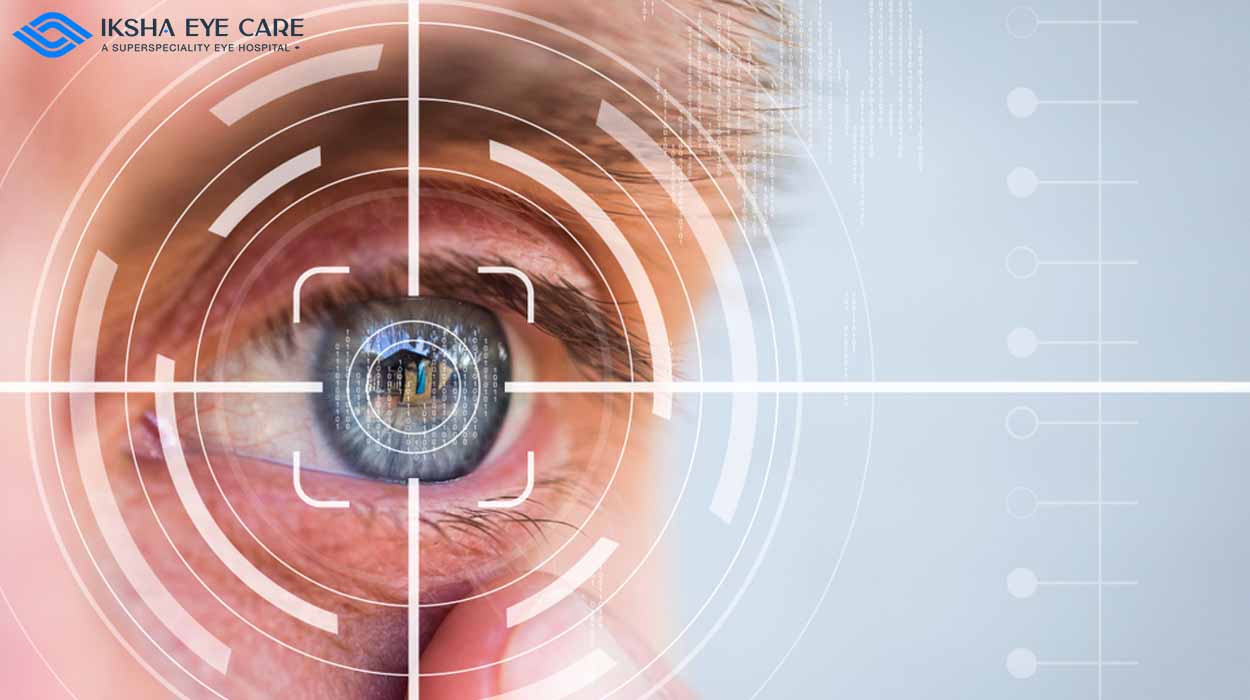Recognizing the Different Eye Conditions Dealt With by Specialized Eye Care Professionals
In the realm of eye treatment, specialized experts play an important duty in detecting and dealing with a broad range of eye problems. From typical refractive mistakes that impact vision clarity to age-related problems that pose challenges as we age, the expertise of these professionals includes managing vision-threatening conditions and elaborate corneal problems. The intricacies of neurological eye conditions present one-of-a-kind difficulties that necessitate specialized treatment. As we begin on this exploration of the different eye conditions addressed by specialized eye treatment experts, it comes to be evident that the intricate internet of ocular health holds a myriad of fascinating insights waiting to be discovered.
Common Refractive Errors
Refractive errors prevail visual conditions caused by a flaw in the eye's capability to properly concentrate light, resulting in blurred vision. One of the most prevalent types of refractive errors consist of nearsightedness (nearsightedness), hyperopia (farsightedness), astigmatism, and presbyopia. Nearsightedness occurs when the eyeball is as well long or the cornea is as well rounded, triggering far-off challenge appear blurry. Hyperopia, on the other hand, takes place when the eyeball is too short or the cornea is as well level, leading to close-by items being out of emphasis. Astigmatism is defined by an irregularly shaped cornea, leading to altered or obscured vision at all distances. Presbyopia is an age-related condition where the lens loses its flexibility, making it hard to concentrate on close objects.
These refractive errors can be corrected via various approaches, including spectacles, contact lenses, or refractive surgical procedure. Eye care professionals play a crucial function in detecting and handling refractive mistakes to help people attain clearer vision and boost their quality of life.
Age-Related Eye Problems
As individuals age, their eyes might be susceptible to a range of problems beyond refractive mistakes that can influence their vision and overall ocular wellness. Age-related eye conditions are usual and can dramatically impact the quality of life for older adults. Among one of the most prevalent age-related eye conditions is age-related macular deterioration (AMD), an illness that causes central vision loss and can make tasks like analysis and driving challenging. refractive surgeries in al. Cataracts, another typical problem amongst older individuals, create clouding of the eye's natural lens, resulting in obscured vision. Glaucoma, characterized by damage to the optic nerve, is additionally a lot more common with age and can cause field of vision loss or loss of sight if left without treatment. In addition, presbyopia, a condition where the eye's lens loses versatility, is an all-natural component of aging and leads to difficulty concentrating on close things. Regular eye tests with specialized eye care experts are critical for very early detection and management of these age-related eye conditions to preserve vision and preserve eye wellness as individuals grow older.
Vision-Threatening Diseases
Vision-threatening conditions include a variety of major ocular problems that have the prospective to substantially impact an individual's sight and overall aesthetic feature. These conditions present a threat of irreversible vision loss if not without delay diagnosed and treated by specialized eye treatment experts. Some usual vision-threatening conditions include glaucoma, diabetic retinopathy, age-related macular deterioration (AMD), and retinal detachment.
Glaucoma is a team of eye conditions that harm the optic nerve, usually as a result of high intraocular pressure, bring about field of vision loss and prospective loss of sight if left without treatment. Diabetic retinopathy is a problem of important link diabetes that impacts blood vessels in the retina, creating vision impairment or loss of sight. AMD is a progressive problem impacting the macula, causing central vision loss. Retinal detachment takes place when the retina divides from its underlying tissue, causing sudden vision loss that calls for immediate clinical attention (refractive surgeries in al).
Very early detection, routine eye exams, and prompt intervention are critical in managing vision-threatening illness to maintain vision and preserve lifestyle. Specialized eye care specialists play an important duty in diagnosing, treating, and handling these problems to stop permanent vision loss.

Corneal Conditions
Corneal disorders incorporate a range of conditions that influence the transparent front component of the eye, referred to as the cornea. These problems can bring about pain, visual disruptions, and in severe situations, vision loss. One common corneal condition is keratoconus, where the cornea thins and bulges external into a cone shape, causing astigmatism and obscured vision. Corneal dystrophies, such as Fuchs' dystrophy, cause steady vision loss because of unusual down payments in the cornea. Corneal abrasions, frequently brought on by injury or foreign items, can lead to discomfort, redness, and level of sensitivity to light. Additionally, infections like keratitis can irritate the cornea, potentially bring about scarring and vision impairment otherwise without delay treated. Treatment for corneal conditions varies depending on the details condition but might consist of medications, call lenses, or in severe cases, corneal transplants. Routine eye examinations his explanation are essential for very early detection and monitoring of corneal conditions to maintain vision and eye health.
Neurological Eye Conditions
Neurological eye problems involve problems that affect the connection between the eyes and the brain, influencing visual processing and overall eye feature. These conditions can manifest in numerous methods, influencing vision, eye movements, and even the control between the eyes. One usual neurological eye problem is optic neuritis, characterized by inflammation of the optic nerve leading to vision loss, shade Full Report desaturation, and discomfort with eye activity.
An additional substantial problem is nystagmus, where the eyes make recurring, unchecked motions, affecting aesthetic acuity and depth understanding. In addition, problems like amblyopia, commonly referred to as "lazy eye," result from unusual visual growth in very early childhood, resulting in decreased vision in one eye.
Neurological eye conditions require customized care from professionals like neuro-ophthalmologists who have competence in both neurology and ophthalmology. Diagnosis typically involves a thorough eye assessment, imaging studies, and cooperation with specialists to deal with the underlying neurological issues impacting the visual system. Therapy techniques can include medicine, vision therapy, or in extreme situations, surgical interventions to handle these complex conditions properly.

Final Thought
To conclude, specialized eye care specialists deal with a large range of eye conditions, including typical refractive errors, age-related eye problems, vision-threatening conditions, corneal disorders, and neurological eye conditions - refractive surgeries in al. By understanding these numerous problems and seeking ideal therapy from eye treatment professionals, individuals can preserve ideal eye health and wellness and vision. It is necessary to prioritize routine eye assessments and follow advised treatment plans to maintain and secure one's vision for the future
Comments on “Locate the very best Glaucoma Service Near Me: Professional Eye Treatment Solutions”